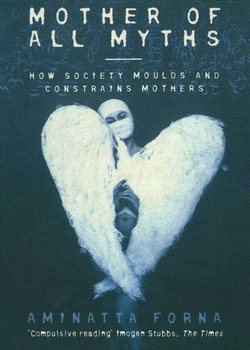Читать книгу Mother of All Myths - Aminatta Forna - Страница 12
Frederick Truby King
ОглавлениеMost of the childcare gurus make one unequivocally positive contribution to childcare and with Truby King it was the revival of breastfeeding, which at that time had become thoroughly unfashionable. ‘Breast is best’ was his saying and his achievements, including halving the infant mortality rate in New Zealand, are undoubtedly due to that single premise. Otherwise posterity has not judged Truby King kindly. His approach to childrearing was strict, forceful and unyielding. He bullied, cajoled and threatened mothers whom he appeared to regard as the weak link in the entire process (he once commented in exasperation that if men had the capacity to breastfeed they would have the sense to do what he said) and he advocated for the care of small babies a regime of almost military harshness.
Babies were to be fed only every four hours and at no other time, regardless of how much they cried or however apparent their distress. He also forbade mothers to feed at night at all, urging them to let their babies ‘cry it out’ rather than give in. To do so would have been to spoil the child. The Truby King method also discouraged physical contact between mother and child, including kissing or cuddling which was considered unnecessary as well as unhealthy and highly likely to pass on germs. Playing with babies would only overexcite them and for that reason was frowned upon. Of course, many women broke the rules and hugged or played with their babies only to berate themselves about it afterwards.
A flick through his most famous book, Care and Feeding of Baby, reveals what has become the standard style for babycare books even today: the only two characters are Mother and Baby (fathers have no role except to earn money); baby is always a boy; the family arrangements are nuclear. The prose is classic ‘carrot and stick’. The author uses his professional status to back up his mixture of inducements and warnings. Mothers would achieve peace and perfection if they followed his advice.
Breaking the rules resulted in indiscipline, a ruined child or even death as the eminent paediatrician remarked in speeches which were sometimes little more than rants against the failings of mothers: ‘much wastage of infant life in our midst is due to self-indulgence and shirking of duties.’3 Mothers frustrated Sir Frederick who would have much preferred that the care of infants was entirely taken over by specially trained nurses.
Despite a firm belief in gender roles and the place of women, Truby King did not appear to believe in the idea of maternal instinct. He considered motherhood a calling for which women had to be trained, because left to their own devices they would ruin the lives of their children. The closest he ever came to recognizing any kind of natural emotions was a reference to the additional advantage of promoting bonds between mother and child when breastfeeding. In general he regarded mothers as inadequate, ignorant and lacking in discipline. A mother was all that stood between him and the creation of the perfect child.
When Truby King died in 1938 in New Zealand, his long and distinguished career had earned him international recognition. His ideas lived on until the war years and just beyond; many of today’s fifty-, sixty- and seventy-year-olds were Truby King babies, and many grandmothers still regard silence, solitude and timed feeds as the definition of a good baby.
The aftermath of the Second World War produced a new set of circumstances and a different agenda. Women, too, were ready to give up this gruelling and often heartbreaking regime. By the 1950s, Truby King’s ideas were swept aside as a new era of motherhood rolled in.
